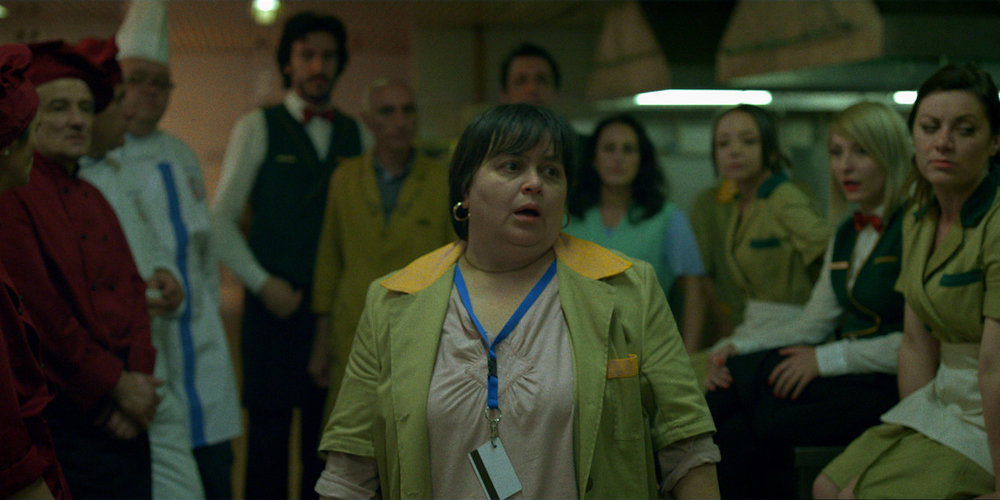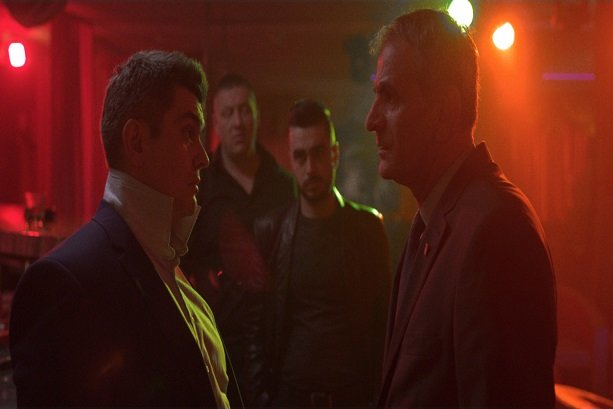The 35th Fajr International Film Festival made its official opening to public on Friday, although – as it has been the tradition for quite some time – the event opened one day early on Thursday for the press and the media.
The international section of Iran’s largest film festival and one of the most well-reputed and spectacular cinema event in the Middle East came into its 35th year with some 140 short and feature-length movies of all genres from 58 countries attending. The number of foreign guests in this year’s edition is far higher than last year’s: Well over 350 guests from different groups, mainly A-list directors, screenwriters, actors, special effects gurus, producers, festival managers, film buyers, and film sellers, have been invited to take part in the prestigious event at the heart of cosmopolitan Tehran. Directors of over 70 per cent of movies in the screening program are present, according to FIFF director Reza Mirkarimi.
“The programming team has managed to pull together a plethora of different viewpoints in storytelling from around the world in hopes of generating great discussion with Iranian audiences, films critics, and reporters,” Mirkarimi addressed the press after the screening of the Slovak-language dramedy ‘The Teacher’ by Czech director-writer Jan Hrebejk. “The ultimate goal is to globalize Fajr, as this is not just about watching movies; rather a global ritual, part of which is film watching,” Mirkarimi added.
Not a ‘red-carpet’ annual event, the festival director has stressed, giving the priority to less-known by no means less-significant film productions from cinematic giants like France, Germany, and South Korea to countries with a far less share in the global cinema such as Mongolia, Latvia and Peru. “We are not looking for celebrities to participate.” But there are big names in the list of the invited, too: Russia’s highly distinguished filmmaker Alexander Sokurov (who is enjoying his second time at Fajr), leading figure in the Icelandic film industry Friðrik Þór Friðriksson, Austrain producer Veit Heiduschka who produced Michael Haneke’s ‘Caché’ and ‘The Piano Teacher’, and many other interesting names that will bring interested cinemagoers to the festival’s venues.
As expected, France has the highest number of screenings at this year’s edition of Fajr Festival, with 21 feature-length and two short movies, including some restored classics. ‘Death in Sarajevo’, written and directed by Oscar-winning Bosnian director of No Man’s Land, Danis Tanovic, and co-produced by France and Bosnia, was screened on the first day of the 35th FIFF Friday night. The movie was selected as Bosnia and Herzegovina’s submission in the best foreign-language film Oscar category this year, which brought about Iranian filmmaker Asghar Farhadi’s second Academy Award for ‘The Salesman’. Although ‘Death in Sarajevo’ failed to secure an Oscar nomination, it did win the Silver Bear Jury Grand Prix, as well as FIPRESCI at 2016 Berlin Film Festival in which it premiered.
Set in the fictional, financially troubled Hotel Europa whose days of glory are long behind (the manager – skillfully played by Izudin Bajrović, lists for the EU bigwig (Jacques Weber), Bill Clinton, Erdogan, Angelina Jolie and U2 among the previous famous guests), ‘Death in Sarajevo’ – a liberal adaptation from the stage play Hotel Europe by French intellectual and political activist Bernard Henri-Levy – becomes a platform to unfold an intense, multi-level narrative of characters representing a hierarchy while being tangled in their own web of personal affairs. It is 2014 and a large EU delegation is set to arrive at the bankrupt hotel for the 100-year anniversary of the events that are widely acknowledged to have sparked the First World War, namely the assassination of Archduke Franz Ferdinand, nephew of Emperor Franz Josef and heir to the Austro-Hungarian Empire, along with his wife by a Serbian nationalist Gavrilo Princip in Sarajevo.

While the hotel staff are threatening to strike for being unpaid for two months, on the rooftop, a TV show is broadcasting discussions about the anniversary. A historian talking about the 1914 assassination is cautious about not giving a ‘uniformed way of thinking’ while recounting the events, which basically sets the pace for the whole movie as a whole. To him, the fact that people are still arguing whether Ferdinand had been an occupier or a victim and Princip a national hero or a terrorist is a good thing; it protects people from uniform thinking, and could perhaps bring Bosnians to embrace multiculturalism.

Meanwhile, chief receptionist Lamija (Snezana Vidovic) is trying to dissuade her mother, who has worked the laundry for 30 years, from leading the strike as she had earlier saw Omer’s hired goons beating up the labor leader. She also doesn’t want to lose her job. All her efforts fail, however, when she is fired by Omer for betraying his trust. The mother-daughter reunion at the end is perhaps the only version of a happy ending Tanovic could allow his characters.
The movie is an allegory for contemporary Europe and as such, the ‘Death’ follows the narrative through the passage of time and well into the present, where bullets once again claim lives, but this time, as TV journalist Vedrana (Vedrana Seksan) and a combative descendant of Gavrilo Princip (Muhamed Hadzovic) had argued, it does not make any difference.

The 35th edition of Fajr International Film Festival (FIFF) is underway in Tehran from 21 to 28 April. Danis Tanovic has been announced to be attending the festival as a guest, but was absent during Friday night screening at Charsou Cineplex. This report may be followed by an interview with the director, given the opportunity.
























Your Comment